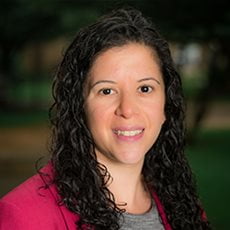Welcome from the Director
Dear MSW Students,
I am excited to introduce myself as the new Program Director of our Master of Social Work program and join a community of learners, advocates, and future change-makers. As I step into this role, I do so with deep respect for your individual journey and a strong commitment to supporting you—academically, personally, and professionally.
My path to social work education is unique. My practice background is rooted in clinical ethics and moral distress, where I’ve worked alongside patients, families, and healthcare teams to navigate some of life’s most complex decisions—often involving end-of-life care and serious illness. This work affirmed my belief in the power of our profession and in the impact of social work practice. One of the most exciting things about social work is the sheer breadth of possibility it offers. Whether you’re drawn to clinical work, policy and advocacy, healthcare, schools, research, community organizing, or mental health—this degree opens doors. The flexibility and range of the social work profession is one of its greatest strengths, and I’m so energized by the paths you will each choose to follow.
For those of you who may be balancing school with outside responsibilities, I am right there with you. I am Canadian and as an international faculty member, I am still trying to navigate new systems in a new country amid bouts of homesickness. I am also a mom of two very young kids, a role that has deepened my understanding of how people learn and grow. Motherhood has reminded me daily that care work and intellectual work are not separate domains. They inform each other in powerful, necessary ways. I carry this perspective into our program with the belief that your lived realities—whether as caregivers, first-generation students, transfer students, international students, working professionals, or all the above—deserve to be honored and centered in the learning environment. Let us listen deeply and learn from one another, and lead with compassion. Together, we will continue to build a learning community where your unique voice strengthens the collective impact of our profession.
This handbook is a resource guide and contains information about our policies, curriculum, and student resources. If your question is not answered here, please use this protocol to identify the person to assist. I can assure you that there are resources, mentors, and fellow students ready to help when you need it. For example, you can look to our Graduate Student Leader Program or the Connections Tutoring Lab. If you are a prospective MSW student, we are excited you are interested and ask that you please visit Social Work Admissions for assistance.
I encourage you to be open and honest about your needs—whether academic, personal, or logistical. UTA has vast resources, including Counseling and Psychological Services, Career Development, Writing Center, Health Services, Student Access and Resource Center, Emergency Assistance Fund, Office of International Education, and Maverick Pantry stocked with formula, diapers, non-perishable food, and professional clothing. If you ever have UTA wide questions, our Dean of Students is an excellent point of connection for support at the university level.
Whether you are just beginning your journey or returning with new questions and renewed purpose, know that I am here to walk alongside you. Please don’t hesitate to reach out, stop by, or share your ideas—I welcome your insights, your stories, and your vision for our program. I am here to listen and learn. I am deeply invested in your success and well-being.
I wish you all the best on your new adventure,
